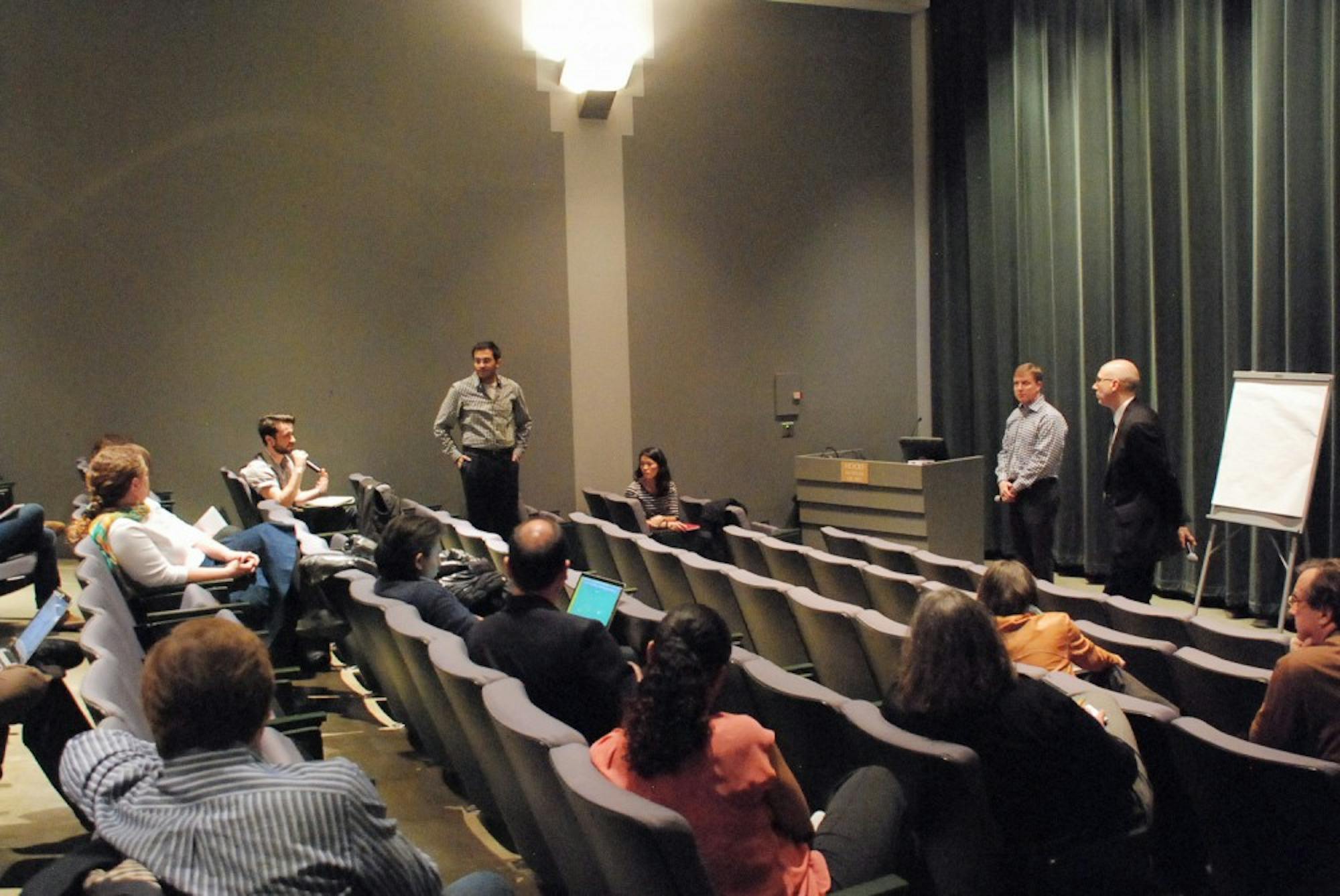Around 30 faculty members and 15 students attended Monday’s “Moving Dartmouth Forward” sessions, which discussed the Innovation Center and New Venture Incubator and an arts and innovation district that would centralize campus entrepreneurial and artistic endeavors. Some involved in the College arts community expressed hesitation about the consolidation, noting a desire to separate artistic creativity from what they saw as financially-driven entrepreneurship.
The Innovation Center and New Venture Incubator, which will be housed at 4 Currier Place, was designed to engage students in experiential first-hand learning and will provide space for entrepreneurial ventures and events with up to 130 attendees, said office of entrepreneurship and technology transfer executive director Trip Davis.
By building the innovation center near the Hopkins Center and the Hood Museum of Art, the College will create an area of campus dedicated to arts and innovation, Davis said.
The Innovation Center and New Venture Incubator is slated to open at the end of spring term, and some curricular and co-curricular programs will start this summer. Programs include a six-week boot camp that teaches students about various aspects of starting a company, as well as hosting entrepreneurs as part of a “Founder’s Forum” initiative.
The center will also help students build entrepreneurial and venture skills in different areas of interest, including arts, engineering, medicine and social sciences, Davis said.
“Every artist is an entrepreneur,” Davis said. “We need to broaden the scope and definition of what is entrepreneurship and facilitate artists and student entrepreneurs with skills and spaces to create successful ventures.”
Associate dean of the faculty for the arts and humanities Adrian Randolph said that another initiative involves “makerspaces” in the Hopkins Center that encourage active learning among students in new ways, citing the Hop Garage as an example.
“The Hop Garage is a classroom during the day, a sound studio during the afternoon and a concert hall during the evening,” Randolph said.
The speakers also discussed new display spaces that will feature art galleries and new production and performance labs.
“We do not want corridors and lobbies to be simply empty neutral spaces, but rather be activated by possible learning activities,” Randolph said.
Studio art department chair Esmé Thompson said the entrepreneurial ideas presented at the “Moving Dartmouth Forward” session overemphasized business-related aspects of the arts. Thompson said she did not feel included in administrative discussions about combining the arts with entrepreneurship.
“We do our job very effectively, and we do not need students to be pushed prematurely into a business model — students need a chance to explore,” Thompson said. “I really can’t buy into all these ideas proposed, but I guess I have no other choice.”
Studio art professor Louise Hamlin said she fears that the goals of successful entrepreneurship are different from those of the studio art department.
Attendee Walker Fisher ’14, a theater modified with computer science major, said he hopes administrative changes to the arts departments will not undermine technology’s role in the arts.
“I found that traditional forms of art, like theater, did not develop my entire potential until I coupled it with computer science in the digital arts and made the self-creation process an instantaneous one,” he said.
Theater major Xavier Curry ’14 said he felt that the initiatives presented at the event should be more focused on the arts and art students rather than a range of academic departments. The College should prioritize the arts, he said.
The College, theater major Amber Porter ’14 said, should emphasize improving the current resources available to the arts department over starting from “scratch.”




